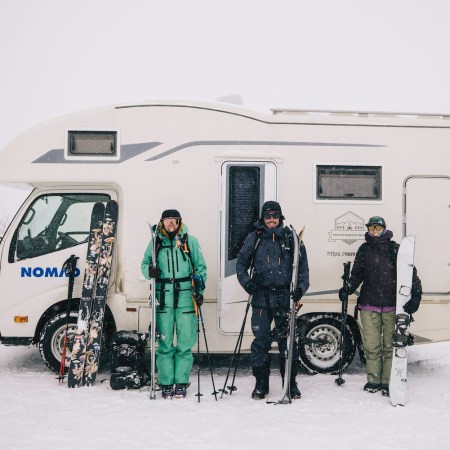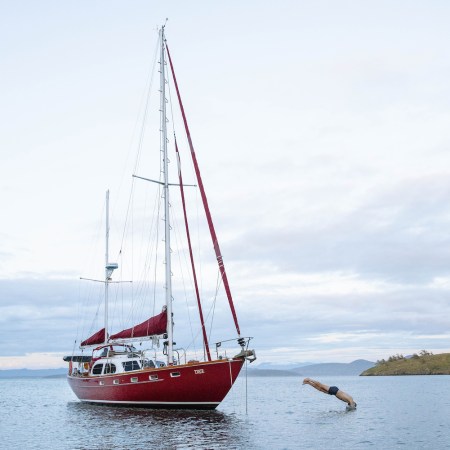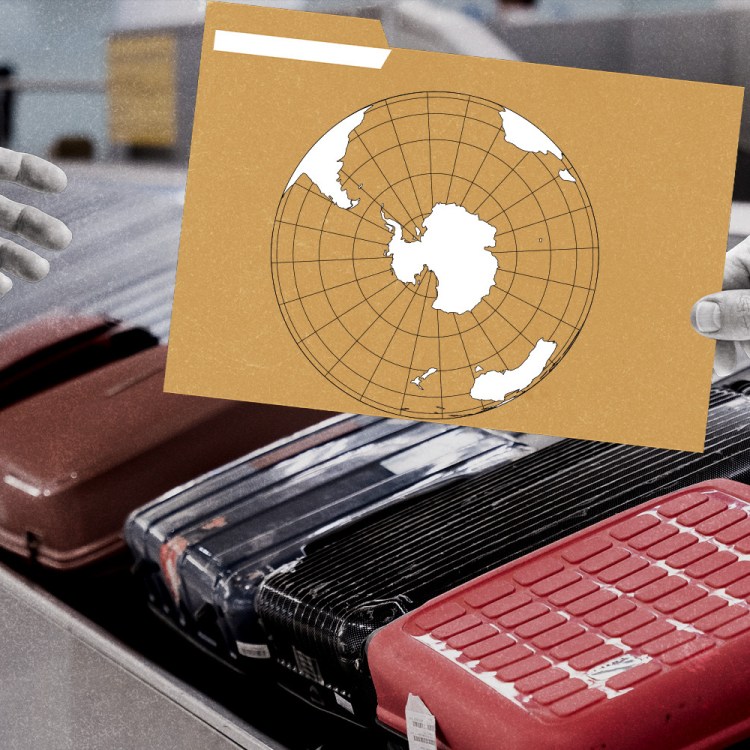Maybe you watched last night’s returns and thought: Oh HELL yeah.
Maybe you watched last night’s returns and thought: And so begins the fight.
Maybe you watched last night’s returns and said: I am f-ing out of here.
We speak, now, to this final segment of the American population, the ones who crashed the Canadian government’s immigration page last night. Looking to cut and run and have drinks on a beach (or ski slope) in a country that didn’t just elect an out-and-proud p*ssy grabber? Here are a few ideas.
CANADA: You’ll need to reside in Canada for six years before pursuing citizenship. To get your residency papers, consider entry as a skilled worker — or as an investor, entrepreneur or self-employed person. Options for the latter include running a farm; the first two come with substantial (CAD$300K+) resource requirements.
FRANCE: Want to chill in France for a year? Throw around $30K (the figure varies depending on the exchange rate, but basically you’re looking at the minimim valuation of a year’s worth of expenses) into a checking account (cash only — investments don’t count) and apply for a yearlong, renewable residency visa. Downside: You can’t work. Upside: They literally drink wine 24 hours a day. Downside: This might come up for review when France’s own far-right candidate (and Trump fan) runs for president next year.
IRELAND: All you need is an Irish grandparent and you’re in.
GERMANY: Did your ancestors flee Nazi oppression in Germany between 1933 and 1945 for political or religious reasons (largely, because they were Jews or Communists)? See here for a streamlined path to “(re)naturalization.“
U.K.: Are you exceptional? Like seriously exceptional — in the arts, science, engineering, etc.? If so, then you might be eligible for one of the U.K.’s Tier 1 Exceptional Talent visas, awarded by five “Designated Competent Bodies.” Startup types, note that some are awarded by “Tech City UK” for digital technology innovators.
SOUTH AFRICA: Americans get 90 days of visa-free travel to S.A. After that, the country will look favorably among those of independent means, retirees with a “minimum prescribed net worth” of around 21M rand (about $1.32M), certain skilled workers and business owners and investors in specific industries (including mining, automotives, IT and biotech). Their Civic and Immigration Services will have more details.
DENMARK: As a member of the Schengen Area — the single-border zone uniting 26 European countries — common rules apply: U.S. citizens can spend up to 90 days out of every six months in any Schengen state. In other words, you can’t do “border runs” between Denmark and Sweden every three months to “renew” your visitor’s visa. Beyond that, Denmark utilizes a points system that rewards education, language ability, youth and experience in certain in-demand professions.
ST. BARTHS: No visa needed for stays under 90 days. If you’re looking to stay longer, get comfortable with a photocopier, notarized translations and inch-thick stacks of banking records: prove to the French that you can cover your yearlong stay — in cash, not investments — and they’ll probably permit you the pleasure of buying properties and otherwise on their land. If you need to work, lawyer up.
BELIZE: Belize is visa-free for Americans for stays of up to 30 days. After that, you’ll need to obtain a visa and renew it monthly ($25) for up to six months; after that, the fee doubles to $50. Good news: if you like Belize, you can just keep renewing your tourist visa. Bad news: it doesn’t allow you to work. Good news: Who wants to work? Just be able to show you have enough cash on hand to get by: at $60US a day, you’ll need about $87K in the bank to make it through the next presidency.
MONACO: “If you have enough money and are prepared to spend more time in Monaco than elsewhere in the world, then yes, you can become a resident there and ‘live happily ever after’ without paying taxes in Monaco,” says Eric G. Major, CEO of Henley & Partners, a residency and citizenship planning firm. “That does not necessarily preclude you from having to pay taxes elsewhere in the world.” (Helpful note from the IRS for American citizens: “Your worldwide income is subject to U.S. income tax, regardless of where you reside.”) Renouncing for Monegasque citizenship will not be easy, Henley says: “It’s worth noting that Monaco does not have a citizenship program, and being a long-term resident there — i.e., over 10 years — will not guarantee any pathway to citizenship.”
This article appeared in an InsideHook newsletter. Sign up for free to get more on travel, wellness, style, drinking, and culture.
























